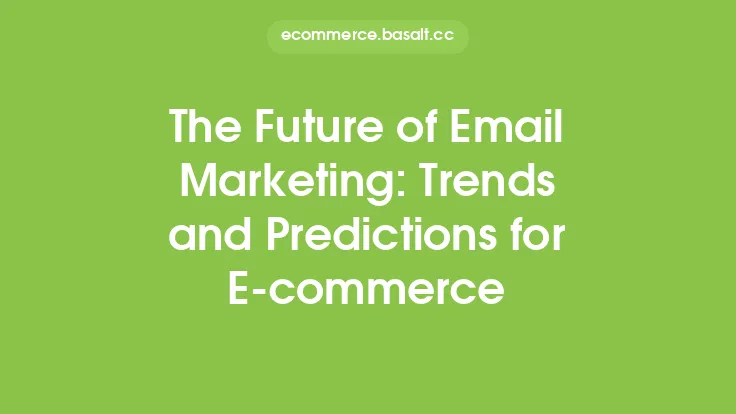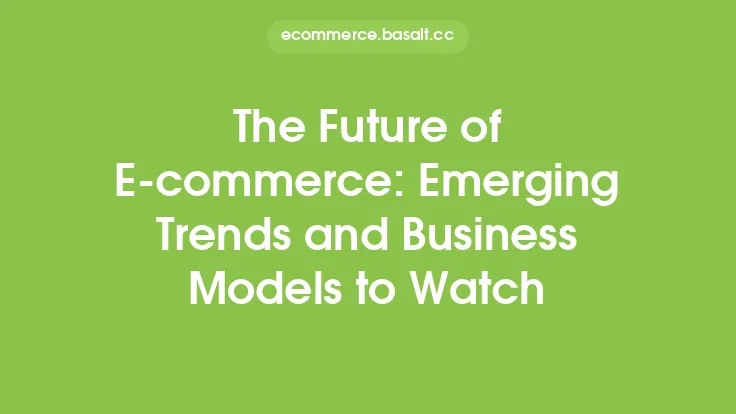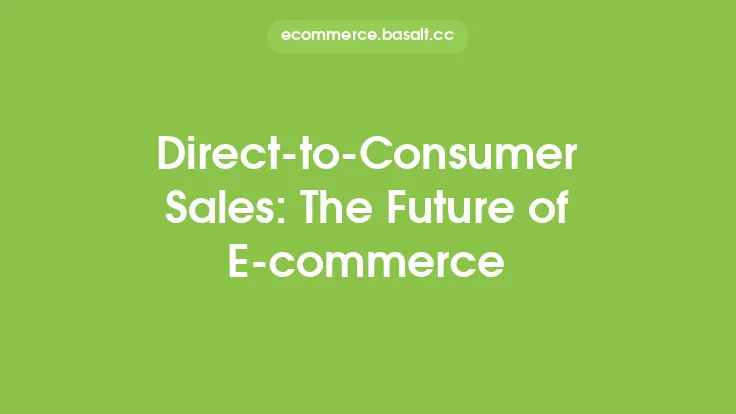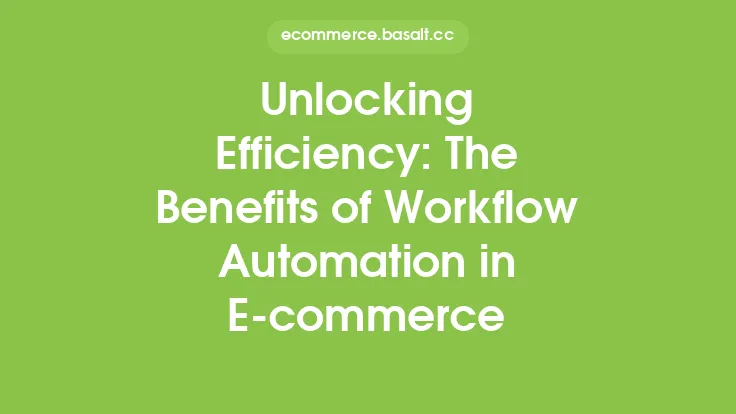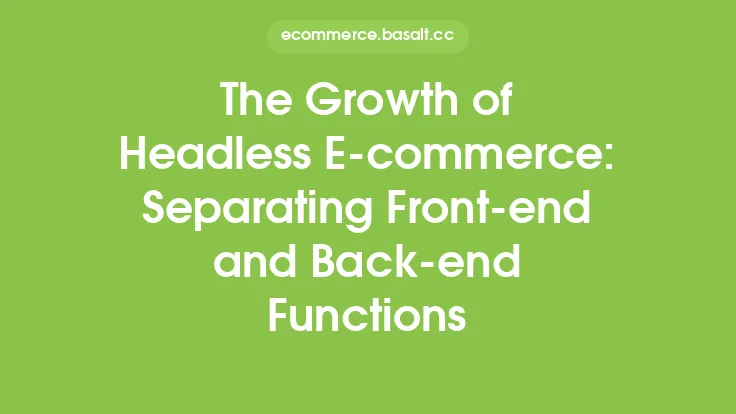The e-commerce industry has experienced tremendous growth over the past decade, and it is expected to continue evolving in the coming years. As technology advances and consumer behavior changes, e-commerce businesses must adapt to stay ahead of the curve. In this article, we will explore the key trends and predictions that will shape the future of e-commerce.
Introduction to E-commerce Trends
E-commerce trends are constantly changing, and it's essential to stay informed about the latest developments to remain competitive. Some of the key trends that are expected to shape the future of e-commerce include the rise of mobile commerce, the growth of social media shopping, and the increasing importance of personalized customer experiences. Additionally, the use of artificial intelligence, augmented reality, and virtual reality is expected to become more prevalent in the e-commerce industry.
The Rise of Mobile Commerce
Mobile commerce is expected to play a significant role in the future of e-commerce. With the increasing use of smartphones and mobile devices, consumers are now able to shop online from anywhere, at any time. E-commerce businesses must ensure that their websites and apps are optimized for mobile devices to provide a seamless shopping experience. This includes having a responsive design, fast loading speeds, and easy navigation. Furthermore, the use of mobile payments, such as Apple Pay and Google Pay, is expected to become more widespread, making it easier for consumers to make purchases on their mobile devices.
The Growth of Social Media Shopping
Social media platforms, such as Instagram and Facebook, are becoming increasingly important for e-commerce businesses. These platforms provide a unique opportunity for businesses to connect with their customers, showcase their products, and drive sales. Social media shopping is expected to continue growing, with more businesses using social media platforms to sell their products and services. Additionally, the use of influencer marketing and user-generated content is expected to become more prevalent, as businesses look to build trust and credibility with their customers.
The Importance of Personalized Customer Experiences
Personalized customer experiences are becoming increasingly important in the e-commerce industry. Consumers expect to be treated as individuals, with personalized recommendations, offers, and content. E-commerce businesses must use data and analytics to understand their customers' behavior and preferences, and provide them with a tailored shopping experience. This can include personalized product recommendations, special offers, and loyalty programs. Additionally, the use of chatbots and virtual assistants is expected to become more widespread, providing customers with a more personalized and interactive shopping experience.
The Role of Artificial Intelligence in E-commerce
Artificial intelligence (AI) is expected to play a significant role in the future of e-commerce. AI can be used to analyze customer data, provide personalized recommendations, and automate tasks such as customer service and inventory management. Additionally, AI-powered chatbots can be used to provide customers with a more personalized and interactive shopping experience. Furthermore, the use of machine learning algorithms can help e-commerce businesses to predict customer behavior, identify trends, and optimize their marketing campaigns.
The Impact of Augmented Reality and Virtual Reality on E-commerce
Augmented reality (AR) and virtual reality (VR) are expected to have a significant impact on the e-commerce industry. These technologies can be used to provide customers with a more immersive and interactive shopping experience, allowing them to try out products virtually before making a purchase. Additionally, AR and VR can be used to create virtual showrooms, product demonstrations, and interactive tutorials. Furthermore, the use of AR and VR can help e-commerce businesses to reduce returns, improve customer satisfaction, and increase sales.
The Importance of Sustainability in E-commerce
Sustainability is becoming increasingly important in the e-commerce industry. Consumers are now more aware of the environmental impact of their purchases, and are looking for businesses that share their values. E-commerce businesses must prioritize sustainability, by reducing their carbon footprint, using eco-friendly packaging, and sourcing products from sustainable suppliers. Additionally, the use of sustainable logistics, such as electric or hybrid vehicles, can help to reduce the environmental impact of deliveries.
The Future of Payment Systems in E-commerce
The future of payment systems in e-commerce is expected to be shaped by the increasing use of digital payments, such as mobile payments, contactless payments, and cryptocurrencies. These payment methods provide a faster, more secure, and more convenient way for consumers to make purchases online. Additionally, the use of payment gateways, such as PayPal and Stripe, can help to simplify the payment process, reduce friction, and increase conversions.
The Impact of Blockchain Technology on E-commerce
Blockchain technology is expected to have a significant impact on the e-commerce industry. Blockchain can be used to provide a secure, transparent, and tamper-proof way of tracking transactions, inventory, and supply chains. Additionally, blockchain can be used to create smart contracts, which can automate tasks such as payment processing, inventory management, and shipping. Furthermore, the use of blockchain can help to reduce counterfeiting, improve product authenticity, and increase customer trust.
Conclusion
The future of e-commerce is expected to be shaped by a range of trends and technologies, including mobile commerce, social media shopping, personalized customer experiences, artificial intelligence, augmented reality, virtual reality, sustainability, digital payments, and blockchain technology. E-commerce businesses must stay informed about these trends and adapt to the changing needs of their customers to remain competitive. By prioritizing innovation, sustainability, and customer experience, e-commerce businesses can thrive in a rapidly changing market and provide their customers with a seamless, personalized, and immersive shopping experience.
